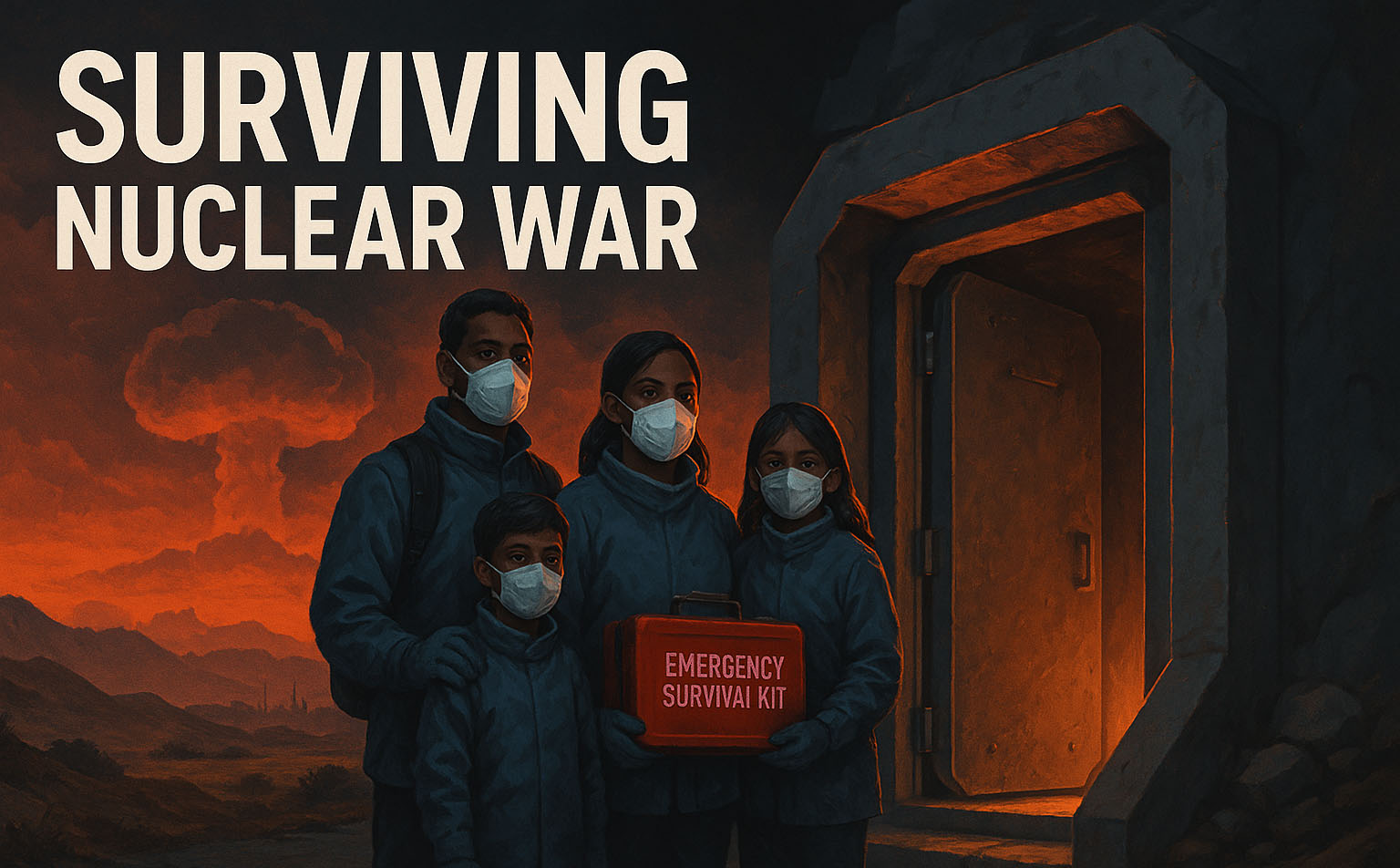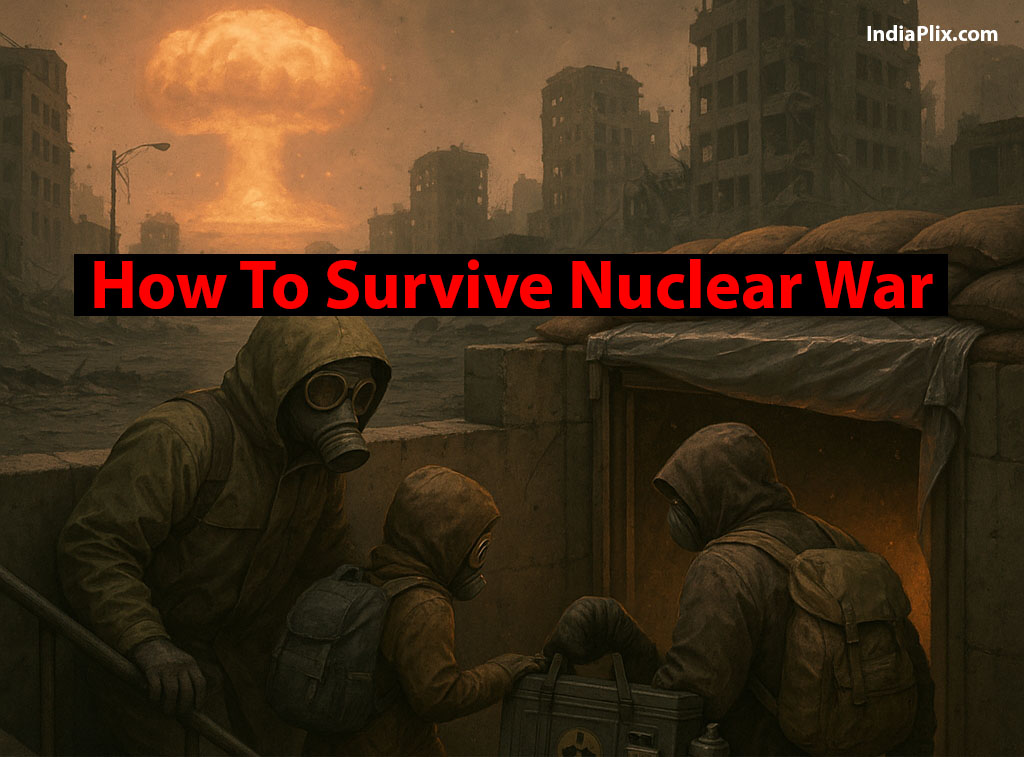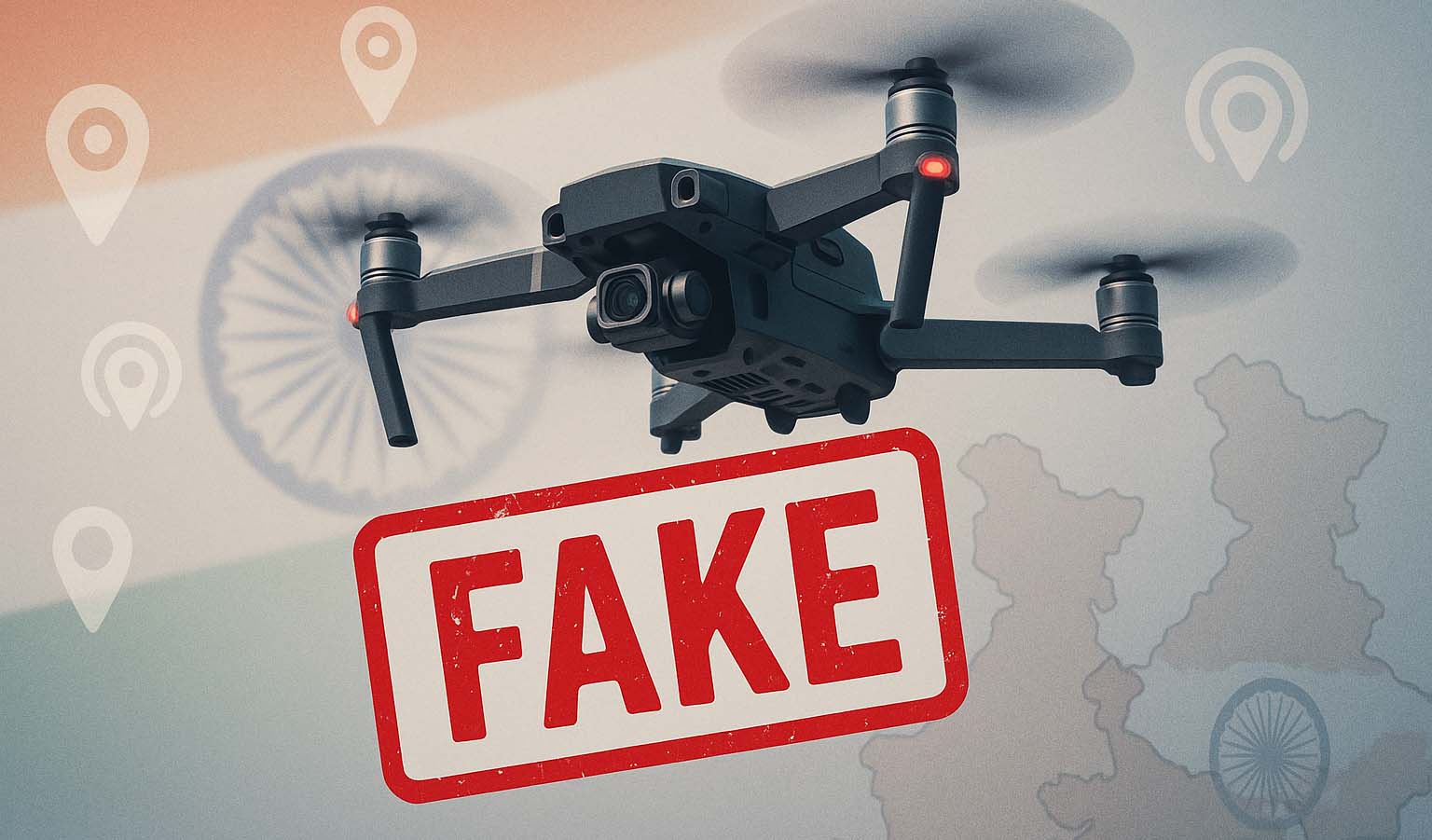
With Pakistan’s emergency nuclear meeting raising global concerns, mastering nuclear war survival is critical.
Islamabad, May 10, 2025 – Tensions in South Asia have reached a boiling point as Pakistan’s Prime Minister Shehbaz Sharif convened an urgent meeting of the National Command Authority (NCA) today, the country’s top body overseeing its nuclear arsenal. The emergency session comes amid escalating military clashes with neighboring India, raising global fears of a potential nuclear conflict between the two nuclear-armed nations. As the world watches with bated breath, we delve into what this means and, crucially, how individuals can prepare to survive the unthinkable—a nuclear war.
A Region on Edge
The recent flare-up began with a series of cross-border strikes, with both nations accusing each other of aggression. Pakistan’s military claims India targeted its airbases, while India alleges Pakistan launched drone and missile attacks on its territory. The NCA meeting signals a grave escalation, as Pakistan evaluates its strategic options, including its nuclear capabilities. With both countries possessing significant nuclear arsenals—Pakistan with an estimated 170 warheads and India with around 180—the stakes could not be higher.
Global leaders, including the United Nations and the United States, have issued urgent calls for de-escalation, warning that a nuclear exchange would have catastrophic consequences not only for the region but for the entire world. Experts estimate that a nuclear war between India and Pakistan could lead to millions of immediate casualties and trigger global climate disruptions, potentially causing widespread famine.
How to Survive a Nuclear War: Practical Steps
While the hope is that diplomacy prevails, the current crisis underscores the importance of preparedness. Surviving a nuclear war requires knowledge, planning, and quick action. Below are essential steps to protect yourself and your loved ones in the event of a nuclear attack.
1. Understand the Threat
A nuclear explosion releases intense heat, a powerful blast wave, and deadly radiation. The immediate danger zone, or ground zero, can extend several miles, depending on the weapon’s yield. Fallout—radioactive particles carried by wind—poses a longer-term risk, potentially contaminating areas hundreds of miles away. Knowing these risks can help you act swiftly.
2. Seek Shelter Immediately
- Find a sturdy building: If a nuclear attack is imminent, get indoors as quickly as possible. Basements or underground shelters offer the best protection. If those aren’t available, move to the center of a concrete or brick building, away from windows and exterior walls.
- Shield against radiation: Use thick materials like concrete, steel, or even stacks of books to block radiation. The goal is to put as much mass between you and the outside as possible.
- Stay put for at least 24-48 hours: Fallout is most dangerous in the first few hours. Avoid going outside until authorities confirm it’s safe.
3. Prepare an Emergency Kit
Stockpile essentials to sustain yourself for at least two weeks:
- Water: Store at least one gallon per person per day for drinking and sanitation.
- Food: Non-perishable items like canned goods, dried fruits, and protein bars.
- Medical supplies: First-aid kit, prescription medications, and potassium iodide tablets to protect against radiation-induced thyroid damage.
- Tools: Battery-powered radio, flashlights, extra batteries, and a multi-tool for emergencies.
- Protective gear: Masks, gloves, and plastic sheeting to seal windows and doors against fallout.
4. Stay Informed
- Monitor official channels: Use a battery-powered or hand-crank radio to receive updates from emergency services. Avoid relying on mobile networks, which may be disrupted.
- Know evacuation routes: If you’re in a high-risk area, familiarize yourself with local evacuation plans, but only leave shelter when instructed by authorities.
5. Protect Against Fallout
- Seal your shelter: Use duct tape and plastic sheeting to seal windows, doors, and vents to prevent radioactive particles from entering.
- Decontaminate: If you’ve been exposed to fallout, remove outer clothing, seal it in a plastic bag, and wash your skin thoroughly with soap and water.
- Avoid contaminated food and water: Do not consume anything exposed to fallout. Stick to sealed supplies.
6. Plan for the Long Term
A nuclear war could disrupt infrastructure, food supply chains, and medical services for months or even years. Consider:
- Learning basic skills: First aid, water purification, and gardening can be lifesavers.
- Community support: Build networks with neighbors to share resources and information.
- Mental resilience: Prepare for the psychological toll by practicing stress management techniques like deep breathing or meditation.
Also read: India-Pak tensions: How To Survive Nuclear War After A Bomb Is Dropped
The Global Call for Peace
As Pakistan’s NCA deliberates, the international community is scrambling to prevent a catastrophe. Diplomatic channels are buzzing, with mediators urging both nations to step back from the brink. The consequences of a nuclear conflict would extend far beyond South Asia, potentially plunging the world into a “nuclear winter” where smoke from burning cities blocks sunlight, devastating agriculture globally.
For now, the world holds its breath, hoping cooler heads prevail. But as individuals, we can take control of our own safety by preparing for the worst while advocating for peace. Share this guide with your family and community, and stay vigilant. Survival begins with awareness and action.
Stay safe, stay prepared, and pray for peace.






